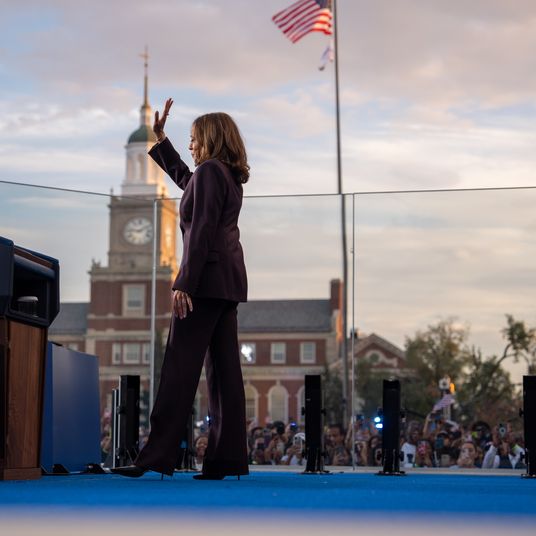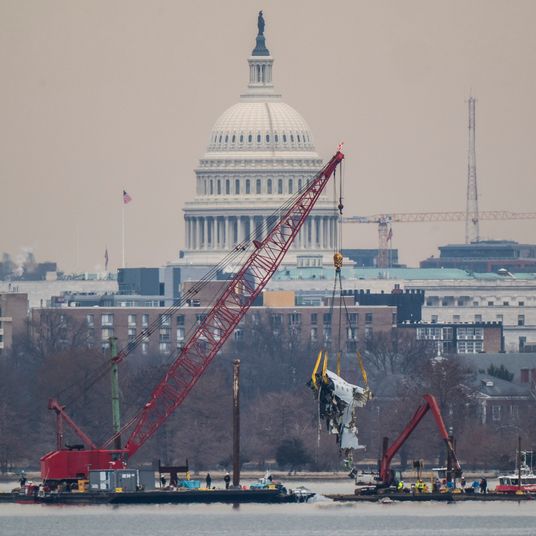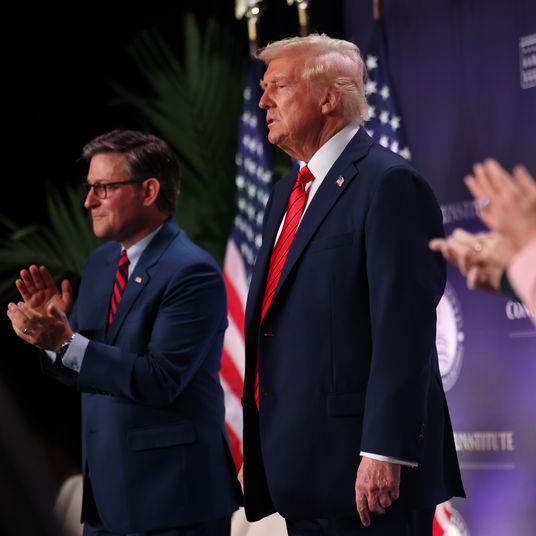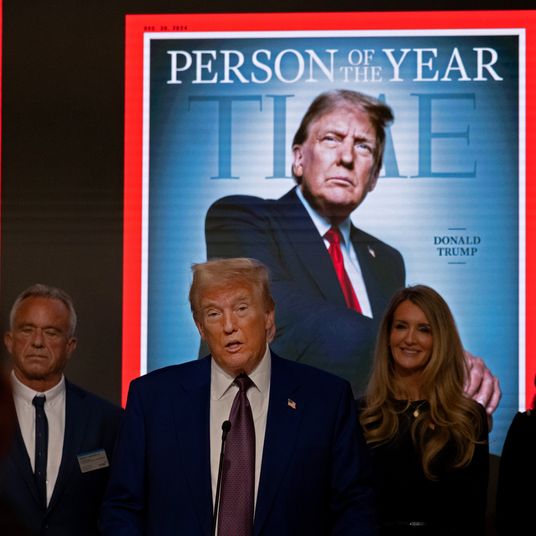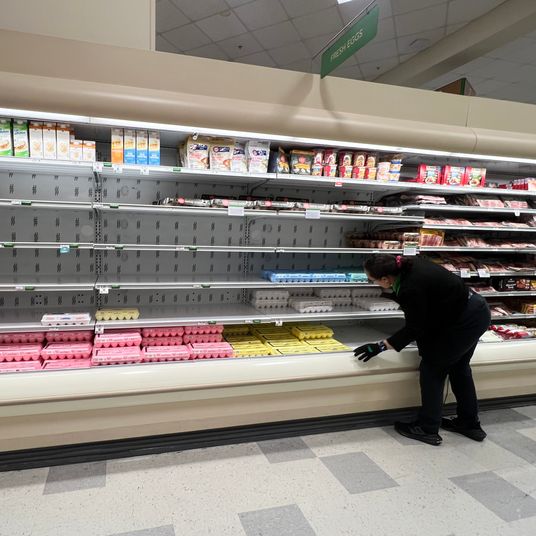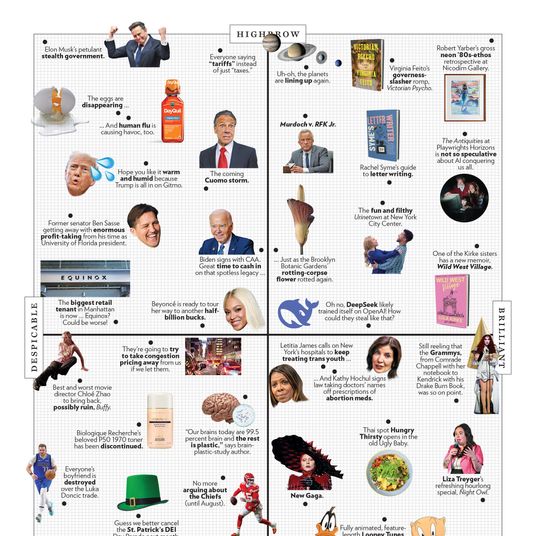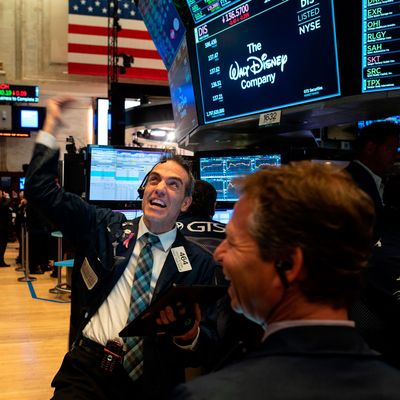
Today’s jobs report was the latest sign that the near and medium-term economic outlook isn’t as gloomy as some expected earlier this year. I spoke with business columnist Josh Barro about what the big picture looks like now, and how it might factor in to President Trump’s re-election bid in 2020.
Ben: There was quite a bit of important economic data to interpret this week. On Wednesday, we learned that U.S. GDP grew faster than expected, at 1.9 percent in the third quarter — though still down just a tick from the previous one. Also on Wednesday, the Fed cut interest rates by a quarter point. And finally, today’s jobs report showed better-than-expected hiring numbers at 128,000. Taken together, what does all this signal to you about the larger economic picture right now?
Josh: I think we have more clarity around something that economic observers had suspected for months: that the economy has materially slowed down from 2018, but is continuing to grow. Within the data, you continue to see a split, where business investment has weakened significantly, but employment and consumer spending continue to look good.
A weakening of business investment is a bad sign for the long run, but it also reflects how Trump’s trade policy is weighing specifically on capital-investment-heavy, goods-producing businesses. This is a real problem, but most of the economy is services, and the service economy seems to be holding up fine.
Ben: Is it rare that there would be this divide between business investment and consumer spending? Could that dynamic last a long time, or is it likely to be a temporary phenomenon?
Josh: In the long run, if business performance is poor, that would have to flow through as lower incomes and lower spending to consumers. But I think what we’re seeing here is that Trump’s trade moves — combined with economic weakness in China and Europe that he didn’t create — is discouraging certain kinds of business investments and putting them on pause. So long as that’s basically confined to the goods parts of the economy, it should be possible to maintain growth despite it. There will be a bit less growth than we otherwise would have had, and that means even less income to workers than they could have had. But the effect doesn’t have to be large, especially if businesses are eventually going to get clarity on the global trade situation. And by de-escalating with China, Trump has somewhat reduced the uncertainty they face (emphasis on “somewhat”).
Ben: What about this “phase one” of a trade deal he’s promised to sign with Xi Jinping? Am I right that it’s fairly meaningless?
Josh: I think the deal is very unlikely to resolve any of the major trade and economic disputes that exist between China and the U.S. It may result in somewhat more Chinese purchases of U.S. agricultural products. The main way in which it’s meaningful is it gives the U.S. and Chinese governments a justification for not further escalating the trade war — for putting off the imposition of new tariffs or even rolling them back a little (though Trump is reluctant to do the latter).
Of course, Trump’s stance could change again — he’s run hot and cold on China in the past. But as the economy has cooled some and he faces reelection under the cloud of impeachment, I think he’d like to avoid additional economic drag on his political fortunes. And if he switches back to trade-warring, he’d impose that drag .So I think the “phase one” deal is likely to essentially mean a pause on further trade escalation until Election Day. This is somewhat positive news for businesses that rely on trade with China.
Ben: In the meantime, the stock market has been performing very well of late. It has risen on the China news and the jobs report, and shows few signs of the jitteriness that was a mainstay earlier this year. Where does its performance fit in with your understanding of the macro picture?
Josh: I think stocks are doing well because, as you note, some of the looming risks we were worried about as of December seem to have gotten less risky. The Fed also helped by first stopping its interest-rate-hike campaign and then undertaking a “mid-cycle adjustment” of rate cuts. Jay Powell seems to have stuck the landing on that — he sent strong signals at this week’s meeting that the Fed does not expect to cut rates more. The president got angry about it on Twitter, but the market was prepared, investors expected to get just these three rate cuts, and so the market barely moved on the Fed announcement.
Ben: Yes, Trump’s anger at Powell seems to be just background noise at this point, blending in with all his other tantrums. Do you think the fears that the Fed will become less independent have subsided? Or were they never really taken seriously in the first place?
Josh: I think we’ve seen a bipartisan consensus in the Senate that has stopped the president from controlling the Fed. Once he started proposing unorthodox members for the Fed board, the Senate got extremely slow to act on his nominees. He just doesn’t have the votes to make monetary policy however he wants, and the Fed members, unlike Republican members of Congress, don’t have to fear what happens when they go home and Republican voters yell at them because the president said they were bad.
It’s conceivable a more organized president would do better at forcing personnel changes at the Fed that would change policy. (These could even be positive policy changes!) But I think the stock market is also a real barrier here — stocks like low rates, but I’m not sure they would like a Fed that looked like it would be out of control.
Ben: With a year left to go before the 2020 election, has it become unlikely in your view that President Trump will be dealing with significant economic headwinds next year?
Josh: That depends how you define “significant.” There were never majority odds that he was going to face a recession before the election, and those odds have fallen, both because some of those economic risks have abated and because the clock has been running down. But economic growth has been slowing and could continue to slow.
Ben: Might the rate of wage growth be a particular problem?
Josh: Yes, but that’s been holding up reasonably well so far. Wage growth is down compared to a few months ago but is stronger than it has been through most of this expansion, stronger than it was under Obama. Essentially it is catching up: The labor market has finally gotten somewhat tight, and so the economic growth we had earlier in the decade is translating into wage growth now. That catch-up growth — workers getting what had been going to shareholders — can continue even if economic expansion cools, so long as the labor market stays tight.





